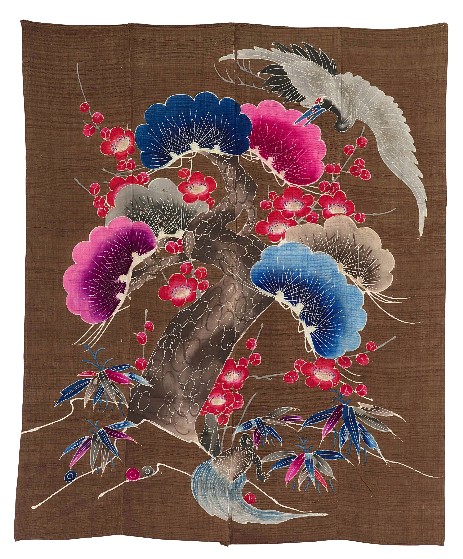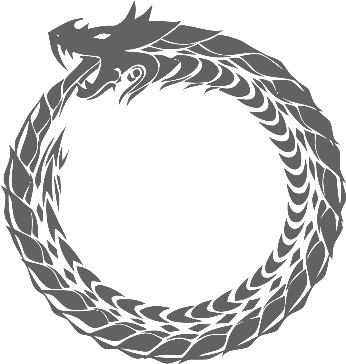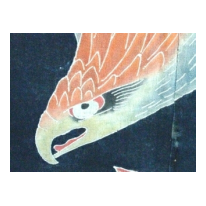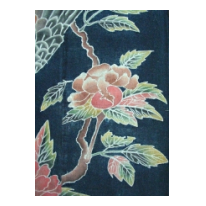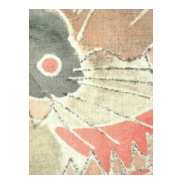
KARASHISHI-BOTAN futon cover
Japan, Meiji (circa 1890), cm 181x158.
The mythology of the lion-dog (or Chinese lion) landed Japan in the same way the Buddhism did, via China and Korea, and soon found its way into Japanese culture where it was called ‘Karashishi’ (Chinese lion) and symbolized elegance and bravery. This mythical creature is often encountered as paired stone statues at the entrances to Buddhist temples, where act as a guardian. Another much used iconographic panorama sees it associated with the ‘Botan’ (peony), that is the king of flowers.
______________________________________________________________________________________________________________________

Tsutsugaki ‘noshi’ futonji panel
Japan, Meiji (circa 1880), cm 96x33.
This is a really lovely panel fragment from a bedding cloth (futonji), decorated in the so-called ‘tsutsugaki’ technique with the pattern of a ‘noshi’ in different tones of indigo and white. Noshi are kind of ceremonial origami (consisting of white paper folded with a strip of abalone, considered a token of good fortune) that are attached to gifts to express “good wishes”. The cotton is hand spun and hand woven, the design rendering is beautifully clear and the various shades of indigo have started to nicely fade.
The cloth has just the right amount of wear and a small spot of staining. It still embodies the soulful, old Japanese feeling without being worn-out or sad from too much age. All in all, a very intriguing tsutsugaki panel, with a great visual impact and aging very nicely. Truly recommended.
______________________________________________________________________________________________________________________
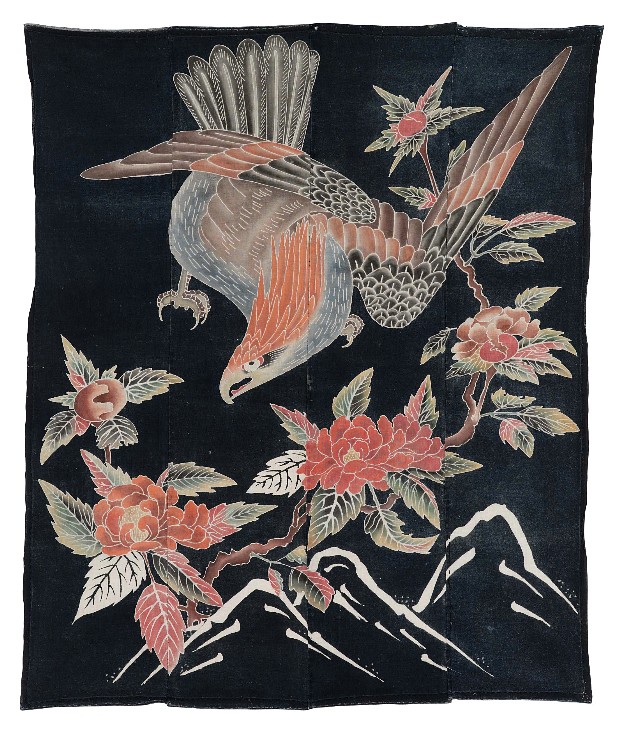
GORGEOUS TSUTSUGAKI FUTON COVER *
Meiji Period, circa 1870, 153x126cm
______________________________________________________________________________________________________________________

ANTIQUE TSUTSUGAKI FABRIC *
* = no more in stock
______________________________________________________________________________________________________________________
RARE TSUTSUGAKI FUTONJI COUPLE *
Meiji Period, (circa 1890)
156 cm x 125 cm & 156 cm x 125 cm
